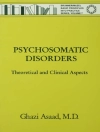This book emphasizes interpersonal relationships as a frequently overlooked, yet crucial element in today’s healthcare system and describes the utility of attachment theory in understanding and managing patients with medical and surgical illness. Sections on the fundamentals of attachment theory, specific patient populations, attachment-based interventions, and future directions comprehensively reflect our current knowledge. The summarized research demonstrates the value of attachment theory in approaching such common issues as non-adherence, strain in the healthcare worker–patient relationship, and somatoform complaints, as well as in modelling maladaptive stress responses and subsequent illness vulnerability. The contributing authors are internationally recognized researchers and teachers who have sought to make this volume accessible to anyone interested in using the positive aspects of interpersonal relationships to maximum advantage in the practice of healthcare.
Inhaltsverzeichnis
Introduction.- Background: Fundamentals of Attachment Theory.- Advanced Attachment Concepts.- Specific populations: Family Practice/Somatization.- Diabetes.- Chronic Pain.- Nephrology/dialysis.- Hepatitis/obesity.- Cancer/ Palliative care.- The Disorganized attachment patient.- The interventions: Consultation and Liaison (C&L).- Collaborative Care.- Psychotherapy.- Mentalizing.- The Future: What about the practitioner’s attachment system.- Health care process/systems.- The Attachment approach to Medical Education.- The Attachment Lens on Psychosomatics.- Summary.












